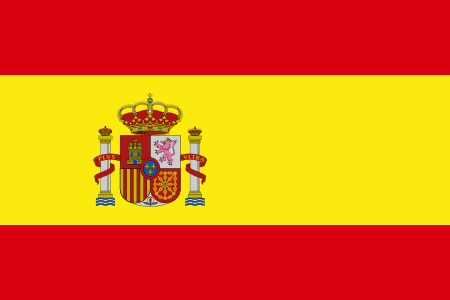General situation
The legal status of ayahuasca in Spain, despite widespread belief, is uncertain. Ayahuasca is not specifically prohibited, but also not specifically authorized for any purpose, be it religious, therapeutic, or shamanic. Because DMT is a controlled substance, numerous arrests and court cases related to the import and consumption of Ayahuasca containing DMT have arisen, the majority of which resulted in acquittals or dismissals. Churches like Santo Daime and the União do Vegetal that utilize ayahuasca in their rituals are officially included in the registry of religious entities, but they have not obtained legal authorization to import ayahuasca for their rituals.
International law
The Convention on Psychotropic Substances (1971) subjects several psychoactive compounds contained in plant species to international control. DMT (N,N-dimetyltryptamine, a tryptamine alkaloid contained in Psychotria viridis and other plants generally used in the preparation of ayahuasca) is a Schedule I controlled substance in the Convention. However, according to the International Narcotic Control Board (INCB) Report for 2010 (par. 284) ‘no plants are currently controlled under that Convention […]. Preparations (e.g. decoctions for oral use) made from plants containing those active ingredients are also not under international control’.
There is no general consensus among judges and law enforcement officials on whether ayahuasca is illegal because it contains DMT, or not. It is up to national governments to make the final decision in their own jurisdictions on whether to impose controls on these plants and preparations, including ayahuasca.
National drug legislation
Drug consumption and possession for personal use are not criminalized in Spain and carry an administrative penalty only when performed in a public place under the Organic Law 4/2015 on protection of public safety. However, cultivation, processing, trafficking, promotion, and possession for the aforementioned purposes are criminalized in the Spanish Penal Code (Art. 368) and punished with imprisonment of three to six years for substances that cause severe damage to health (such as DMT).
Spanish law does not have a system of schedules for classifying controlled substances but instead refers to the lists contained in international drug treaties (Single Convention on Narcotic Drugs 1961 and Convention on Psychotropic Substances 1971).
DMT is subject to national control under Royal Decree 2829/1977, under which psychotropic substances and preparations are governed, contained in Annex I. In Article 2, the rule prohibits “the use, fabrication, importation, exportation, transit, commerce, distribution, and possession, and everything prepared” from substances included in the lists of the 1971 Convention, permits their utilization for “concrete and detailed” scientific purposes. The competent administrative body responsible to grant these permissions is the Spanish Agency for Medicines and Health Products (AEMPS).
Cases
Spain is the country with the highest concentration of ayahuasca detentions in recent years, many of which have been brought to court. The surge started in 2010 with at least 38 arrests until mid-2015. The causes of this rise in arrests are not easily identifiable: it could be attributed to the alarm generated by the Annual Report of the INCB 2010 (par. 284-287), to the rise in airport security measures, or simply to the global expansion of ayahuasca use. It is also possible that much of the ayahuasca that enters Europe arrives through Spain. That is to say that this country has a higher concentration of ayahuasca entering it, and therefore more seizures, though the final destination of the ayahuasca may be another European country. One of the reasons that could explain this phenomenon is the ease of relations that comes with sharing its language with most of Latin America, but at the moment there is not enough information to confirm this hypothesis.
Some of the arrests were dismissed before arriving in court. The cases that finally arrived before a judge have ended until today in acquittals, with the exception of one case in which the defendant self-inculpated by admitting guilt before trial.
The majority of the dismissals were based on the law that buying and possessing controlled substances for personal use is not criminalized in Spain. In these cases it was sufficient to demonstrate that the ayahuasca was destined for private consumption. In other cases the judges interpreted, in line with the INCB’s guidance, that ayahuasca should not be considered an illegal substance in Spain. Moreover, in one 2013 case the judge concluded that there was no scientific evidence to justify the assertion that ayahuasca is a substance prejudicial to health and, consequently, that ayahuasca is not a threat to public health and safety.
Relevant documents
Both Santo Daime and the União do Vegetal are officially recorded in the register of religious entities within the Spanish Ministry of Justice.
Some other ayahuasca churches have faced legal proceedings in Spain, both administrative and criminal. The criminal cases have ended in acquittal. However Santo Daime requested authorization to import ayahuasca to Spain for its rituals and was denied in 2008 by the National Audience (Audiencia Nacional).
The Government Delegation for the National Drug Plan included ayahuasca in its report Emerging Drugs published in 2011, classifying it as a “plant origin substance of abuse”
The proliferation of private associations of cannabis consumers in Spain, based on non-criminalization of personal consumption and the Supreme Court doctrine of shared consumption (recently revised) there have also, on a limited basis, led to the creation of several private consumer associations of ayahusaca and other traditional plants.
For several years, the Platform for the Defense of Ayahuasca (Plantaforma), one of the orgainzations of reference in matters of ayahuasca in Spain, has developed a code of ethics for organizations using ayahuasca, which has become an international reference.
- Fax INCB 2001 Netherlands
- INCB letter ICEERS
- Hoasca 1971 Convention Legal Brief
- INCB Annual Report 2010
- INCB Annual Report 2012
- UN Declaration on the Rights of Indigenous Peoples
- TNI/ICEERS Ayahuasca Policy Report
- ICEERS Technical Report on Ayahuasca
- Plantaforma Ayahuasca Report Spain (Spanish)
- Declaration of Principles of the Religious Groups who consume the Tea Hoasca
Categories:
Countries
Tags:
legality
, ayahuasca
, Spain
, map

